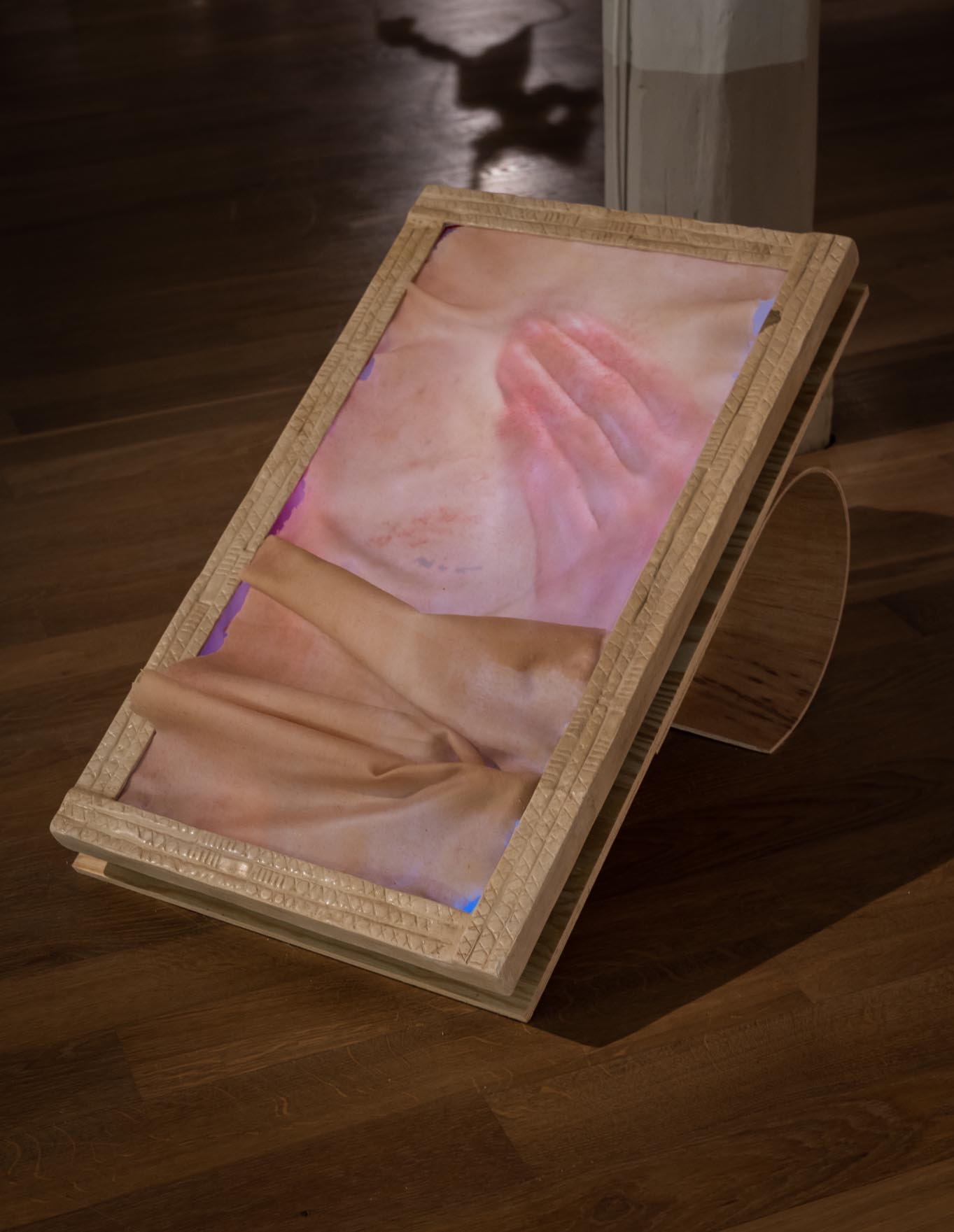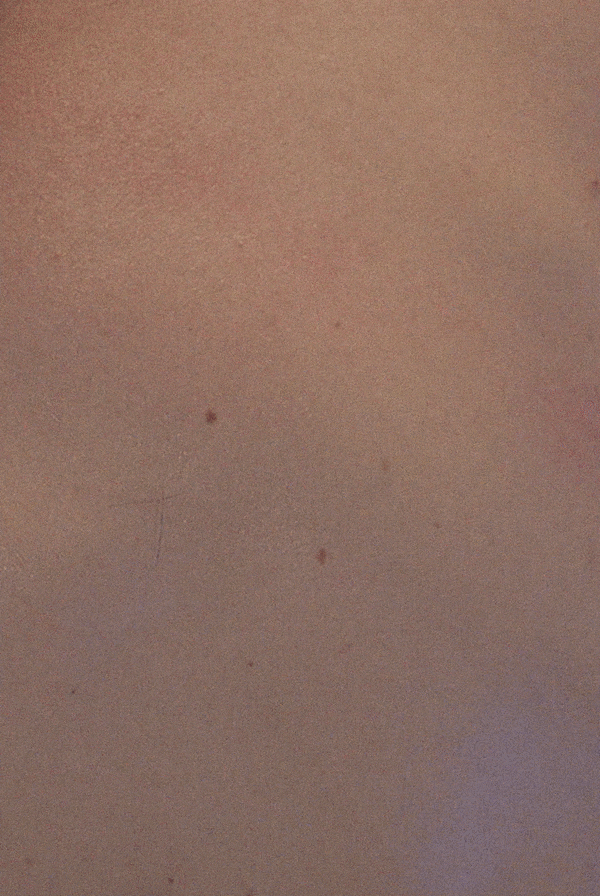We Notched It Up to Fate
video installation
2023
fot. HaWa
The
video frame consists of a multiplied form of a tally stick, a tool
used to record peasants’ labor during the period of serfdom (a cast
of a notch from the collection of the Ethnographic Museum in Cracow).
The system of notches on wood is one of the oldest ways of accounting
for obligations and recording data, long used by Carpathian shepherds
and throughout southern Slavonia. The wooden stick, as one of the few
material traces of Polish serfdom, creates an ornament – the
notches become a looped ornament evoking associations with an
unbroken cycle of suffering, trauma, repetition of history. Massaging
and kneading the body, the encounter between man and another at the
level of touch, is a regulating act, restoring feeling, leading to
the transgression of inherited narratives.
![]()
The Polish title “Kładlismy to na karb losu” refers to the mechanism of justifying social inequality through belief in destiny – an effect of habitus-based submission (Bourdieu), in which structural violence becomes internalized as the “natural order.” The word karb (notch) evokes the tally stick, a tool used to record serf labor, where each cut symbolized debt and dependence. In this sense, the “notch of fate” becomes a material trace of subjugation, inscribed both in language and in the body.
I
juxtaposed the object with belts belonging to the nobility, objects
from the collection of the Central Textile Museum in Lodz, directly
testifying to the material status of the nobility, closely dependent
on the slave labor of peasants.





